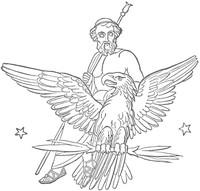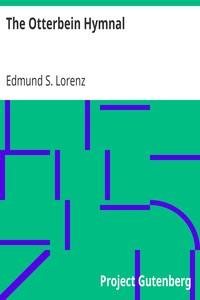|
|
Read this ebook for free! No credit card needed, absolutely nothing to pay.Words: 155002 in 15 pages
This is an ebook sharing website. You can read the uploaded ebooks for free here. No credit cards needed, nothing to pay. If you want to own a digital copy of the ebook, or want to read offline with your favorite ebook-reader, then you can choose to buy and download the ebook.

: The Iliad of Homer Translated into English Blank Verse by William Cowper by Dwight M A Mary Ann Annotator Homer BCE BCE Southey Robert Editor Cowper William Translator - Epic poetry Greek Translations into English; Achilles (Mythological character) Poetry@FreeBooksTue 06 Jun, 2023 plot clandestine, and thy thoughts,665 Think what thou may'st, are always barred to me. To whom the father, thus, of heaven and earth. Expect not, Juno, that thou shalt partake My counsels at all times, which oft in height And depth, thy comprehension far exceed,670 Jove's consort as thou art. When aught occurs Meet for thine ear, to none will I impart Of Gods or men more free than to thyself. But for my secret thoughts, which I withhold From all in heaven beside, them search not thou675 With irksome curiosity and vain. The first book contains the preliminaries to the commencement of serious action. First, the visit of the priest of Apollo to ransom his captive daughter, the refusal of Agamemnon to yield her up, and the pestilence sent by the god upon the Grecian army in consequence. Secondly, the restoration, the propitiation of Apollo, the quarrel of Agamemnon and Achilles, and the withdrawing of the latter from the Grecian army. Thirdly, the intercession of Thetis with Jupiter; his promise, unwillingly given, to avenge Achilles; and the assembly of the gods, in which the promise is angrily alluded to by Juno, and the discussion peremptorily checked by Jupiter. The poet, throughout this book, maintains a simple, unadorned style, but highly descriptive, and happily adapted to the nature of the subject.--Felton. ARGUMENT OF THE SECOND BOOK. Jupiter, in pursuance of his purpose to distress the Grecians in answer to the prayer of Thetis, deceives Agamemnon by a dream. He, in consequence of it, calls a council, the result of which is that the army shall go forth to battle. Thersites is mutinous, and is chastised by Ulysses. Ulysses, Nestor, and Agamemnon, harangue the people; and preparation is made for battle. An exact account follows of the forces on both sides. ARGUMENT OF THE THIRD BOOK. The armies meet. Paris throws out a challenge to the Grecian Princes. Menelaus accepts it. The terms of the combat are adjusted solemnly by Agamemnon on the part of Greece, and by Priam on the part of Troy. The combat ensues, in which Paris is vanquished, whom yet Venus rescues. Agamemnon demands from the Trojans a performance of the covenant. Now marshall'd all beneath their several chiefs, With deafening shouts, and with the clang of arms, The host of Troy advanced. Such clang is heard Along the skies, when from incessant showers Escaping, and from winter's cold, the cranes5 Take wing, and over Ocean speed away; Wo to the land of dwarfs! prepared they fly For slaughter of the small Pygmaean race. Not so the Greeks; they breathing valor came, But silent all, and all with faithful hearts10 On succor mutual to the last, resolved. As when the south wind wraps the mountain top In mist the shepherd's dread, but to the thief Than night itself more welcome, and the eye Is bounded in its ken to a stone's cast,15 Such from beneath their footsteps dun and dense Uprose the dust, for swift they cross the plain. He spake, and sought his bed, whom follow'd soon Jove's daughter, reconciled to his embrace.525 But Menela?s like a lion ranged The multitude, inquiring far and near For Paris lost. Yet neither Trojan him Nor friend of Troy could show, whom, else, through love None had conceal'd, for him as death itself530 All hated, but his going none had seen. Amidst them all then spake the King of men. Trojans, and Dardans, and allies of Troy! The warlike Menela?s hath prevailed, As is most plain. Now therefore bring ye forth535 Helen with all her treasures, also bring Such large amercement as is meet, a sum To be remember'd in all future times. So spake Atrides, and Achaia's host With loud applause confirm'd the monarch's claim.540 ARGUMENT OF THE FOURTH BOOK. In a Council of the Gods, a dispute arises between Jupiter and Juno, which is at last compromised, Jove consenting to dispatch Minerva with a charge to incite some Trojan to a violation of the truce. Minerva descends for that purpose, and in the form of Laodocus, a son of Priam, exhorts Pandarus to shoot at Menelaus, and succeeds. Menelaus is wounded, and Agamemnon having consigned him to the care of Machaon, goes forth to perform the duties of commander-in-chief, in the encouragement of his host to battle. The battle begins. Now, on the golden floor of Jove's abode The Gods all sat consulting; Hebe them, Graceful, with nectar served; they pledging each His next, alternate quaff'd from cups of gold, And at their ease reclined, look'd down on Troy,5 When, sudden, Jove essay'd by piercing speech Invidious, to enkindle Juno's ire. Two Goddesses on Menelaus' part Confederate stand, Juno in Argos known, Pallas in Alalcomene; yet they10 Sequester'd sit, look on, and are amused. Not so smile-loving Venus; she, beside Her champion station'd, saves him from his fate, And at this moment, by her aid, he lives. But now, since victory hath proved the lot15 Of warlike Menelaus, weigh ye well The matter; shall we yet the ruinous strife Prolong between the nations, or consent To give them peace? should peace your preference win, And prove alike acceptable to all,20 Stand Ilium, and let Menelaus bear Helen of Argos back to Greece again. ARGUMENT OF THE FIFTH BOOK. Free books android app tbrJar TBR JAR Read Free books online gutenberg More posts by @FreeBooks
: The Reminiscences of an Irish Land Agent by Hussey Samuel Murray Gordon Home Editor - Hussey Samuel Murray 1824-; Country life Ireland; Ireland History 1837-1901@FreeBooksTue 06 Jun, 2023

: The Number Concept: Its Origin and Development by Conant Levi L Levi Leonard - Number concept Mathematics@FreeBooksTue 06 Jun, 2023
|
Terms of Use Stock Market News! © gutenberg.org.in2025 All Rights reserved.






